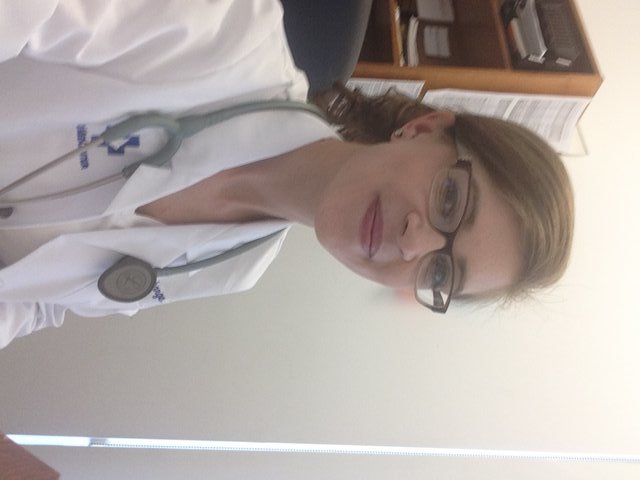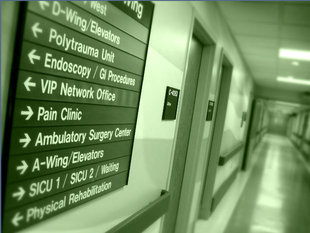(im)perfection
"Where there is perfection there is no story to tell." Ben Okri
***
You know how when you graduate from high school, a million people ask you what you’re going to do with your life next?
When I was 18 and people asked me that question, I told them I was going to be a Pre-Med major, then go to medical school and become a doctor.
Why? they asked.
"Because I want to help people," I said. And I did. I really, really did.
But I discovered that imagining a career in medicine is different than actually having a career in medicine. It's kind of like imagining your perfect marriage partner -- and then finding that your real partner sometimes can't read your mind or meet your emotional needs. And instead of living in constant harmony, sometimes they make you mad (and vice versa) and they leave their dirty socks on the floor and sometimes they forget your anniversary.
But in spite of all the complications, it’s worth the effort to make the relationship work -- even though it's harder and messier than you thought it would be.
Medicine was kind of like that for me. After watching way too many episodes of Dr. Quinn, Medicine Woman, I'd imagined myself working in an ER, suturing wounds of injured patients who would, of course, be so incredibly grateful for my care. I'd give nebulizer treatments to kids with asthma, medicate people who were in pain, and sit by the bedside of my fevered patients, applying cool washcloths to their flushed foreheads.


Seven years after I graduated from high school, I finished my physician assistant degree. Turns out I did end up working in an ER, and there definitely were gratifying moments. But there were also lots of unforeseen experiences. There were women wearing sunglasses in the exam room, refusing to take them off because they didn't want me to see how badly their boyfriend had beaten them. There were drunk people who puked on my expensive Dansko clogs, and "meth heads" who went into rages, screaming and kicking over trash cans. Lots of parents got irritated with me because they wanted an antibiotic for their sick child, when all the kid needed was Tylenol and rest until their viral illness resolved.
There was a man brought in on Father's Day, critically injured after crashing a motorcycle his kids had given him as a gift that morning. Another guy was brought in by police with his leg gushing blood because when police came to search his house for drugs (which they found), he hid in the closet. The police dog cornered him there and, instead of giving himself up, he stayed in the closet with the German Shepherd gnawing on his leg for a good 15 minutes.
Many kids came in with burns, and I had to learn how to correlate the parents' story with the appearance of the burns to see if the parents were abusing their child with scalding water, or whether it really was an innocent mistake to draw a bath that was too hot.
I did chest compressions way too long on a 40-year-old who'd suddenly collapsed for no apparent reason. We kept coding him long after all of us knew we'd never get his pulse back, because his two little kids were in the waiting room next door and none of us was ready to tell them that their daddy was gone.
There were many early mornings and many late, late nights.
After eight years of working in medicine, I was exhausted, jaded, and if I was really honest, I was disappointed. I couldn't fix what was wrong with everyone, I couldn't convince patients to make better choices, and I couldn't save everybody. I discovered that a medical career wasn’t a quaint, romantic log cabin with kerosene lamps and inspirational music in the background. It was more like a MASH tent on the battlefield.

Last year I took a break from clinical medicine. I worked as the director of communications at my church and plied my writing skills. I gave medical lectures and worked on various patient-focused projects for a healthcare company, but I saw very few patients in clinic.
When I moved to California this spring, I started practicing medicine again, this time in an urgent care clinic, and I really love it. It's a little tamer than the ER, but it still has its stresses, people still puke on my shoes, and sometimes patients are cranky.
But I've come to see that this is how medicine is supposed to be. I'm caring for real people in the real world who are just as broken and imperfect as I am. And just like a faithful spouse who's navigating their partner's flaws, or a patient parent who's watching their child make painful choices, sometimes the best thing we can do in life is not only accept, but expect, imperfection. And even though we can't always perfect every imperfection, we can infuse the situation with all the grace (and grit) we can, living out the story that God's lived for each of us.
Over the past ten years of working in medicine, I've learned that if I expect perfection -- whether it's in my career or relationships or skills -- I'll only ever be disappointed. But navigating imperfection -- well, that’s where I find an unpredictable, adventurous life. That's where I grow in maturity and strength. That's where I discover grace.
And, in the words of Ben Okri, that’s where I find the best stories.